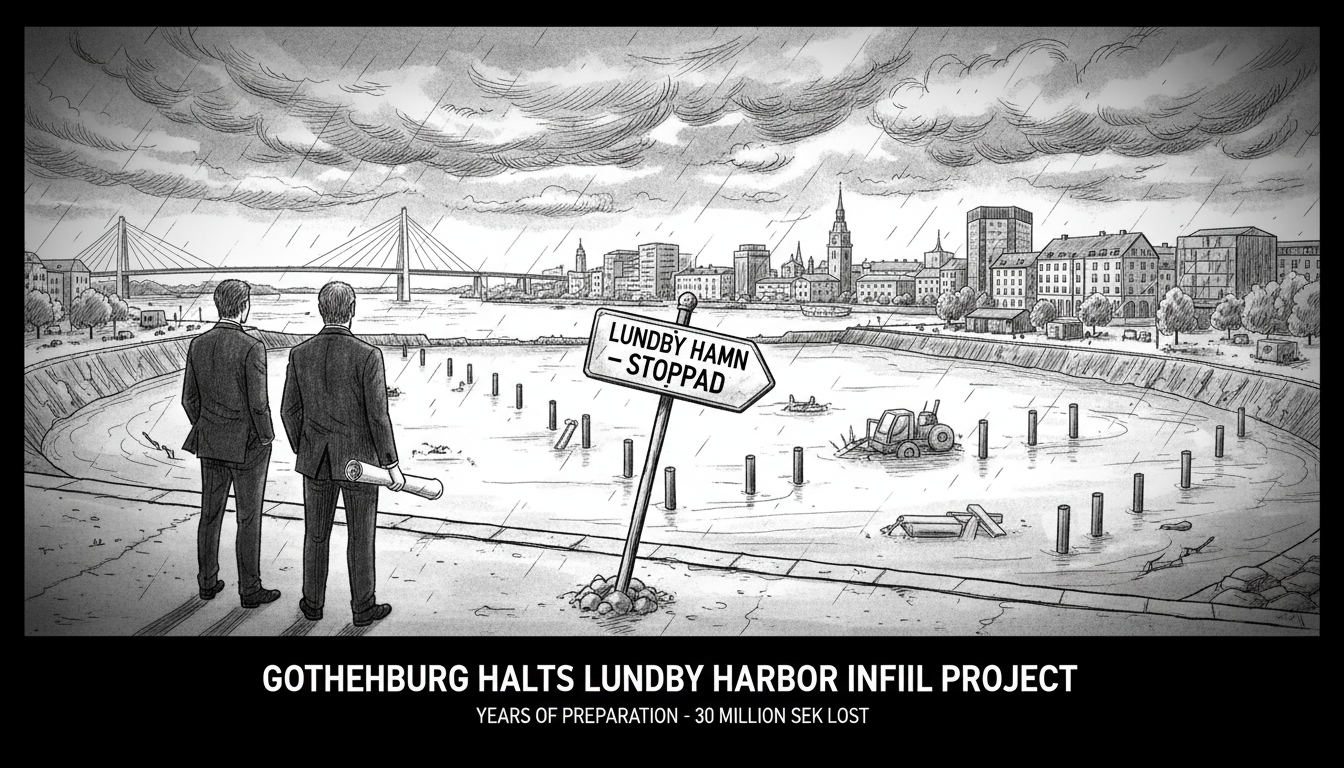Gothenburg city officials have abruptly canceled plans to fill in Lundby Harbor with sand and dredging materials. The project had been in preparation for several years and consumed 30 million Swedish kronor in development costs.
Mikael Dolietis, CEO of Älvstranden development, expressed disappointment about the decision. He said the cancellation feels particularly difficult given the substantial time and resources already invested. The harbor infill project represented a major urban development initiative for the city's waterfront areas.
This decision reflects broader tensions in Swedish urban planning between development needs and environmental considerations. Gothenburg, as Sweden's second-largest city, faces constant pressure to balance economic growth with sustainable development practices.
Urban development projects in Swedish cities typically undergo extensive review processes. Municipalities must weigh multiple factors including environmental impact, public opinion, and long-term city planning goals. The Lundby Harbor situation demonstrates how even well-funded projects can face unexpected termination.
What does this mean for Gothenburg's waterfront development strategy? The cancellation leaves questions about future plans for the Lundby Harbor area. City officials will need to reconsider development options for this strategic location.
The financial impact extends beyond the direct 30 million kronor investment. Lost opportunity costs and the need to develop alternative plans create additional challenges for city planners.
Swedish municipal projects often face scrutiny from multiple stakeholders. Environmental groups, local residents, and business interests all influence development decisions. The Lundby Harbor case shows how complex these balancing acts can become.
Gothenburg's development authority now faces the task of redirecting resources and planning efforts. They must determine new approaches for utilizing the harbor area while addressing the sunk costs of the canceled project.
This situation highlights the unpredictable nature of major urban development initiatives. Even projects with substantial financial backing and years of preparation can encounter unexpected obstacles in Sweden's consensus-driven planning system.

